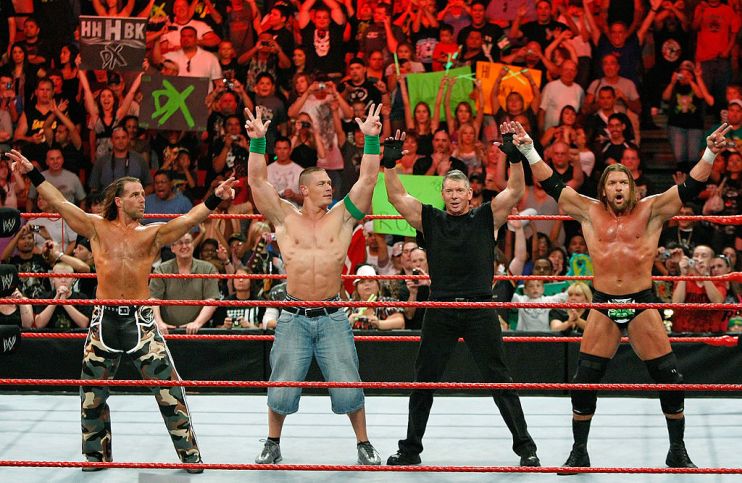Sleeping with your boss? WWE scandal a reminder firms shouldn’t tolerate it

The lesson for businesses from the WWE scandal is that the temptation to overlook the misbehaviour of powerful executives is not only immoral but unwise, writes Will Cooling
After a year of twists and turns worthy of WWE’s own television, Vince McMahon helped open the New York Stock Exchange last Monday to celebrate WWE signing a multibillion worldwide rights deal with Netflix and welcome Dwyane “The Rock” Johnson to the board of directors of the promotion’s new parent company TKO. But by Friday night, McMahon had resigned as TKO’s executive chairman.
What happened in the inbetween days is a former employee, Janel Grant, had filed a devastating lawsuit against McMahon. It was already known that Grant and McMahon had been in a relationship, and McMahon had agreed a multimillion payment for her to not disclose details about the relationship upon her departure from the company. Indeed, it was this revelation and concerns that she had been mistreated, which had forced him to announce his first departure in 2022. But not until the lawsuit was filed did details emerge about McMahon’s conduct during the relationship. The lawsuit builds a detailed case against McMahon, frequently quoting texts sent by him, and providing explicit details about how his alleged behaviour demeaned Grant. We see in McMahon’s own words not just his own depraved sexual desires and misogynistic attitudes, but how entangled the business was with them, with him frequently boasting about sharing pornographic photos of Grant with workers, including using them to help renew the contract of one of his most famous performers. Indeed, the lawsuit alleges that McMahon even engaged in sexual trafficking, with McMahon accused of pushing her to have sex with other people within WWE.
Whilst not denying the relationship, McMahon has made clear that he will contest the lawsuit, and so it may ultimately be a jury that determines where the truth lies. But one cannot help but notice how flat-footed the response from WWE has been, despite the initial outline of these allegations having been in the public domain for 18 months and investigated by their previous board of directors. WWE’s chief content officer and McMahon’s son-in-law, Paul Levesque, had nothing to say at a weekend press conference other than he hadn’t read the lawsuit and wanted to focus on the positives of an ‘amazing’ week for the company.
The lesson for businesses is that the temptation to overlook the misbehaviour of powerful executives is not only immoral but unwise. WWE wouldn’t be in this mess if they had properly enforced corporate rules governing managers entering into relationships with their subordinates.
It is perfectly understandable that people find such rules overly puritanical, given that they involve HR in people’s personal lives, but they are the best defence against sexual harassment. From a distance it is difficult to tell the difference between a relationship that is abusive or one that is merely inappropriate; having zero-tolerance on both is essential for the former to be averted, especially as often the power-imbalance in such relationships makes it very easy for the more senior staff member to turn what began as a consensual relationship into a coercive one.
Likewise, it is important to take real steps to empower workers so they can safely push back against inappropriate behaviour from a senior colleague, be it a woman being abused, or a man being asked to be complicit in such abuse. This is also why having some facility for anonymous complaints is beneficial despite the inherent risks, because when you have executives as powerful as McMahon was in WWE, people will always fear reprisals.
But given the cultural reach of WWE, a reach that is due to expand as it is carried worldwide to over 250m Netflix subscribers in 2025, we have to ask what it means for society that a man like Vince McMahon was permitted to wield control of a product that touched so many people, particularly as they were growing up.
A lawsuit isn’t needed to grasp that WWE frequently featured sexist and racist depictions of women and ethnic minorities, whilst also presenting a masculine ideal – that was often brutish and boastful. The impact that watching hours of that programme had on the psyche of its viewers is a troubling thought, especially as the lawsuit has now laid bare just how lost McMahon himself was in lurid detail the power fantasies he had created.
Will Cooling writes about politics and pop culture at It Could Be Said Substack
